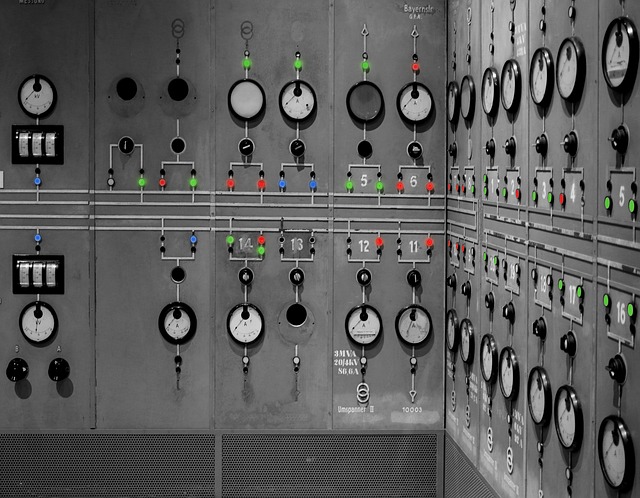Insights on Manufacturing Roles for English Speakers in Germany
Individuals residing in Germany who are proficient in English may consider the manufacturing sector as a viable field of interest. This sector offers a range of roles that can provide insight into the working conditions and environments typical in manufacturing. Understanding these dynamics can aid in making informed decisions regarding potential involvement in this industry.

The manufacturing sector in Germany stands as one of the pillars of the European economy, known for its precision engineering, technological innovation, and high-quality standards. For English speakers considering career opportunities in this robust industry, Germany offers a unique blend of traditional manufacturing excellence and modern industrial practices. While German language proficiency remains important, many international companies operating in Germany have created environments where English speakers can thrive while gradually developing their German skills.
Understanding the Manufacturing Environment in Germany
Germany’s manufacturing landscape is characterized by a strong Mittelstand (small and medium-sized enterprises) alongside global industrial giants. The automotive sector, including companies like Volkswagen, BMW, and Daimler, represents a significant portion of manufacturing employment. Additionally, machinery, chemicals, electronics, and pharmaceutical manufacturing create a diverse industrial ecosystem.
The German manufacturing approach emphasizes precision, quality control, and continuous improvement. The concept of “Industrie 4.0” (Industry 4.0) has been pioneered in Germany, focusing on the integration of digital technologies, automation, and data exchange in manufacturing processes. This creates opportunities for professionals with both traditional manufacturing skills and digital expertise.
For English speakers, larger international companies and those with global supply chains often maintain English as a working language, particularly in specialized roles, research and development departments, and management positions. However, smaller companies may operate primarily in German, making language acquisition beneficial for long-term career advancement.
Key Skills and Requirements for Manufacturing Roles
Technical qualifications stand as the foundation for manufacturing careers in Germany. The country places high value on formal education and recognized certifications. The dual education system, which combines practical training with theoretical education, produces highly skilled workers across manufacturing disciplines.
For English speakers, the following skills and qualifications are particularly valuable:
- Technical expertise in specific manufacturing processes
- Engineering degrees or vocational qualifications (recognized in Germany)
- Quality management knowledge (ISO standards familiarity)
- Experience with automation and digital manufacturing technologies
- Project management capabilities
- Basic German language skills (A1-A2 level), with willingness to improve
- Adaptability to German work culture and processes
Many companies offer language training as part of their onboarding process, recognizing that technical expertise can sometimes outweigh initial language limitations. English speakers often begin in multinational teams or specialized roles where their technical skills are prioritized over German fluency.
Insights into Working Conditions and Safety Standards
German manufacturing environments are known for their strict adherence to safety protocols and worker protection measures. The country has comprehensive labor laws that ensure fair working conditions, reasonable hours, and employee rights. Manufacturing facilities typically maintain high standards of organization, cleanliness, and safety compliance.
Work schedules in German manufacturing often follow structured patterns, with standard working hours between 35-40 hours per week, depending on industry and union agreements. Shift work is common in production environments, with appropriate compensation for evening and night shifts. The work-life balance in Germany is generally respected, with generous annual leave (typically 24-30 days) and public holidays.
Safety training is mandatory and comprehensive, with regular refresher courses and clear emergency procedures. Personal protective equipment (PPE) is strictly enforced, and safety violations are taken seriously. For English speakers, safety documentation and training may be available in English, especially in larger companies, though safety signage typically follows international standards with German text.
Navigating the Application Process for Foreign Professionals
For English speakers seeking manufacturing roles in Germany, the application process requires careful preparation. German employers typically expect detailed application packages including a CV (Lebenslauf), cover letter (Anschreiben), educational certificates, and work references. These documents should follow German formatting conventions where possible, though many international companies accept English-language applications.
Professional networking plays a crucial role in securing manufacturing positions. Industry trade fairs, professional associations, and online platforms like XING (German equivalent to LinkedIn) provide valuable connections. Job portals such as StepStone, Indeed Germany, and the Federal Employment Agency’s website (Arbeitsagentur) regularly list manufacturing positions.
Work permits and visa requirements vary based on nationality. EU citizens enjoy freedom of movement, while non-EU citizens typically need to secure employment before applying for work permits. The EU Blue Card program offers streamlined immigration procedures for highly qualified professionals in technical fields, making it an attractive option for manufacturing specialists.
Integration and Career Development Opportunities
Successful integration into German manufacturing environments involves both professional adaptation and cultural understanding. German workplace culture values punctuality, direct communication, structured processes, and clear hierarchies. Decision-making often follows methodical approaches with thorough planning and documentation.
Career development in German manufacturing typically follows structured paths, with opportunities for advancement based on demonstrated skills, additional qualifications, and experience. Many companies offer continuing education programs, specialized training, and support for further professional certifications.
For English speakers, language progression remains important for long-term career growth. While initial roles may accommodate limited German skills, advancing to leadership positions typically requires professional German proficiency. Many employers support language learning through subsidized courses, tandem programs, or dedicated training time.
Salary Expectations and Benefits in Manufacturing
Manufacturing salaries in Germany vary significantly based on qualifications, experience, location, and company size. Entry-level technical positions typically start between €35,000-€45,000 annually, while specialized engineers and experienced professionals can earn €50,000-€80,000 or more. Management positions command higher salaries, often exceeding €100,000 for senior roles.
| Position Level | Qualification | Approximate Annual Salary Range |
|---|---|---|
| Entry-level Technician | Vocational Training | €32,000 - €42,000 |
| Specialized Technician | Advanced Vocational Training | €40,000 - €55,000 |
| Manufacturing Engineer | Bachelor’s Degree | €45,000 - €65,000 |
| Senior Engineer | Master’s Degree + Experience | €60,000 - €85,000 |
| Department Manager | Advanced Degree + Experience | €75,000 - €120,000 |
Prices, rates, or cost estimates mentioned in this article are based on the latest available information but may change over time. Independent research is advised before making financial decisions.
Beyond base salary, German manufacturing positions typically include comprehensive benefits packages. These often feature health insurance contributions, pension plans, annual bonuses, paid vacation, and sometimes profit-sharing arrangements. Many companies also provide additional perks such as subsidized meals, transportation allowances, and continuing education support.
The strong presence of labor unions in German manufacturing means that many positions are covered by collective bargaining agreements, ensuring standardized wages and working conditions across companies within the same industry. These agreements often include automatic salary increases based on experience and inflation adjustments.
Manufacturing careers in Germany offer English speakers valuable opportunities to develop technical expertise while experiencing a different professional culture. While language challenges exist, the combination of strong industrial traditions, technological innovation, and stable employment conditions makes Germany an attractive destination for manufacturing professionals willing to adapt and grow in an international environment.




